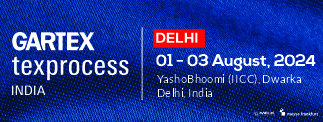
Partnering Success
Bangladesh has made enormous strides in the past 50 years – from one of the poorest nations at birth, it is now one of the fastest-growing economies. GDP per capita has increased from $134 in 1971 to $2,503 in 2021. Extreme poverty has been cut by more than half from 34 percent in 2000 to 13 percent in 2016.
Furthermore, people are living longer and healthier lives with maternal mortality cases down from 434 per 100,000 live births in 2000 to just 173 in 2017. Almost all children go to school; in fact, Bangladesh’s net enrollment rate at the primary school level reached above 97 percent. The country’s flagship female stipends program realized the goal of girls making up more than half of secondary school enrollments.
As a result, more and more women are entering the workforce and contributing to the growth of the economy. The growth of the readymade garments industry led to female labor force participation rates going up from 21 percent in 1990 to 35 percent in 2021. Now, every home has electricity and around 8.2 million people in remote, rural areas in Bangladesh has access to clean energy.
Bangladesh has also imparted new lessons to the world to cope with challenges arising from climate change. Through multipurpose shelters that also operate as primary schools, embankments and early warning systems, cyclone-related fatalities have decreased by 100-fold since independence.
In the last 50 years, the World Bank has been a steadfast partner.
As one of Bangladesh’s first development partners, the World Bank began this partnership with a $50 million credit in 1972 and in the ensuing years, committed more than $38 billion in financing to help Bangladesh overcome barriers to growth and development. Today, Bangladesh has the largest ongoing program of the International Development Association (IDA) and the World Bank is the country’s largest external funder.
A Journey Together
The celebrations kicked off with the inauguration of a photo exhibition by Axel along with Minister of Finance, Mr. A H M Mustafa Kamal, FCA, MP. The photos were a direct reflection of some of the remarkable achievements of Bangladesh and the World Bank spanning the past five decades. The exhibit, “A Journey Together,” showcased some of the outcomes of the partnership from thematic areas such as agriculture, education, health, energy, and connectivity.
In his remarks, Axel said, Bangladesh’s remarkable journey is embedded in the indomitable energy and resilience of its people, and a national will to build a prosperous nation.
The event was attended by other officials, development partners, members of civil society, and academia, besides university students.
Looking Ahead
Following the event, a panel discussion entitled, “Celebrating Success: Exploring Possibilities” was held afterward.
The dialogue focused on Bangladesh’s remarkable success, and the policies and actions needed to keep Bangladesh on track toward its vision of attaining upper middle-income status in 2031. The panel, moderated by Martin, was asked how Bangladesh can address current challenges and maintain strong and inclusive growth. Questions around rapid change in technologies, and what the private sector can do was also addressed. Perspectives were also heard on how multilateral institutions like the World Bank can navigate global uncertainties and ensure that development gains are protected.
Besides Axel, panelists included Ahmad Kaikaus, Alternative Executive Director of World Bank Group, Junaid Kamal Ahmad, Vice President of Operations, MIGA, Nihad Kabir, Chairperson of the Trustee Board of Business Initiative Leading Development (BUILD), and Ahsan Mansur, Executive Director of the Policy Research Institute of Bangladesh.









